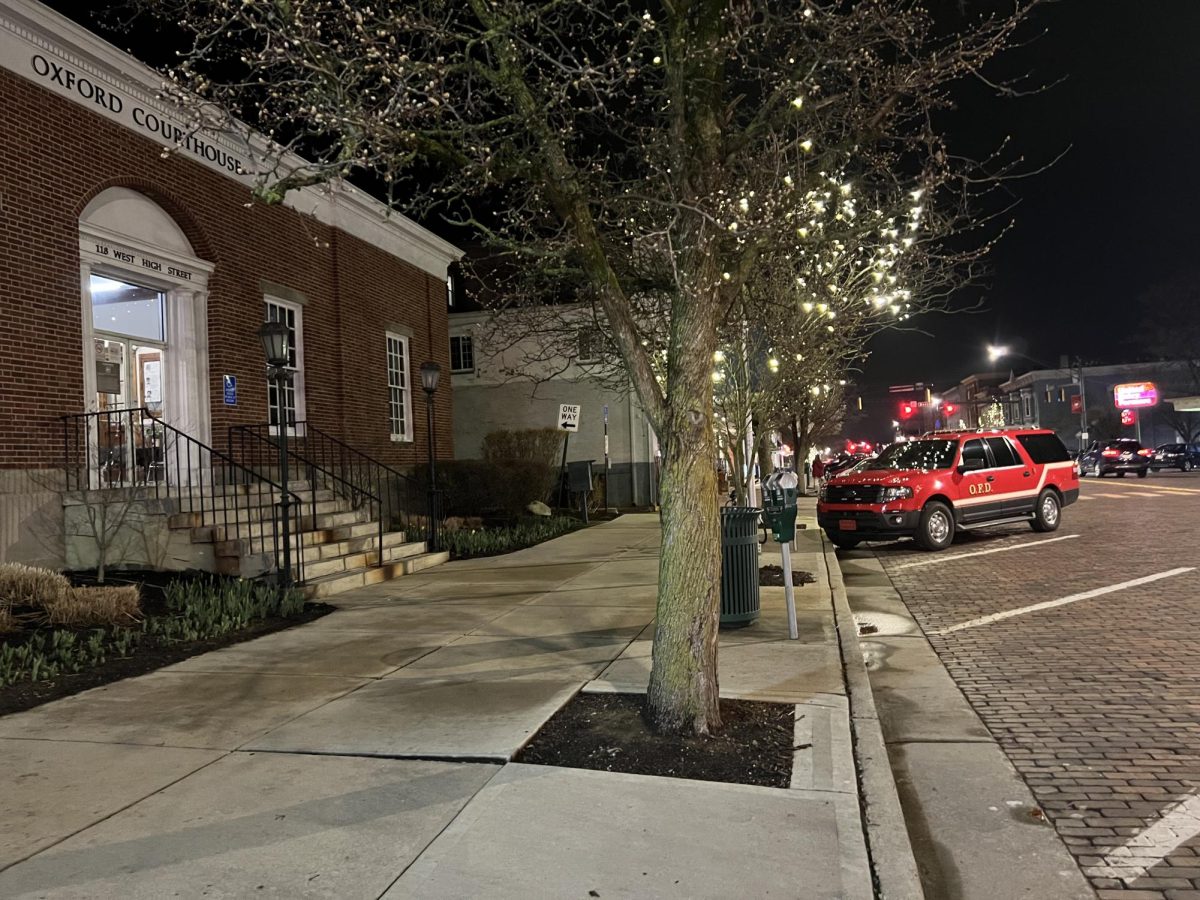City officials say that if Miami University does not contribute more money to the city, the city will ask voters in November to raise property taxes to cover deficits in several departments, including fire and emergency medical services.
The city has been under financial strain as a result of employee retention challenges, increased payroll and capital expenditures, and a growing population, assistant city manager Jessica Greene told the city council at a work session on March 5.
According to Greene, the city expects to run a deficit near $1 million in 2024, partially offset by a $400,000 transfer from the general fund.
She said that the city is experiencing a population surge in both elderly residents and Miami University students, putting a strain on resources.
“Income tax, in particular, is struggling to keep pace with the city’s growth,” she said.
In particular, city officials say Miami should contribute money toward the city’s fire and EMS departments, which service the campus. She said that the university’s campus is among the top five call locations for both the fire department and EMS services.
Individuals 60 years and over accounted for over 42% of EMS incidents in 2022, according to a city analysis.
According to Greene, “Miami University has verbally expressed their willingness to contribute, whether through an increase in property taxes or income taxes.”
City manager Douglas Elliott said the recent addition of three firefighter paramedic positions cost $400,000 this year. The money was drawn from the city’s general fund, he said.
Revenue options proposed by Elliott include a 3.25 mil voted tax levy, which would yield $1.2 million annually, with Miami property exempt. For homeowners in the community, the proposed property tax levy would translate to an approximate $150 increase for a home valued at $200,000.
Alternatively, a 0.25% voted increase in income tax is projected to generate $1.3 million annually, with pension and investment income exempted. Another option is an agreement with Miami University for a $1 million payment in lieu of taxes, which it might cover by implementing a student fee.
Elliott said he was optimistic about reaching a fair agreement with Miami.
If the deficit is not resolved by contributions from Miami, the city council will have to vote in August to put a levy on the November ballot, Elliott said.
Elliott said that half of the income tax received by the city is contributed by Miami.
Councilor Jason Bracken said that it is the employees, not the university or students directly, who would bear the financial burden of an income tax increase.
“It’s not Miami or the students paying, it’s the employees, and every employee in Oxford pays,” he said.
To address the strain on emergency services, Elliott proposed shifting the responsibility of responding to false alarms on the university campus to the Miami police department.
This change would involve installing alarms capable of distinguishing between false and real alarms, with the former directed to the Miami Police Department and the latter to the Oxford Fire Department.
“I think this will take some of the burden from our fire department,” Elliott said.
Mayor William Snavely suggested that Miami University’s contribution to the city should be around $1 million or more to align with the range of services provided by Oxford.
“Anything under $1 million wouldn’t measure up to the cost of their usage of the fire and EMS departments,” Snavely said.








